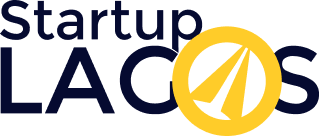The Federal Government of Nigeria has reported a substantial revenue generation of N31.2 billion from the Electronic Money Transfer Levy (EMTL) scheme, reflecting its commitment to enhancing the nation's financial resource mobilization efforts. This significant figure was unveiled during the recent distribution announcement made by the Federation Accounts Allocation Committee (FAAC) for December 2024.
Understanding the Electronic Money Transfer Levy
The Electronic Money Transfer Levy, introduced as part of the Finance Act, aims to capitalize on the growing trend of digital financial transactions within Nigeria. The levy is applied to electronic or online remittances, specifically targeting outward money transfers that are executed via banks and other financial institutions. This initiative not only seeks to streamline and regulate the burgeoning fintech sector but also aims to expand the government's revenue base by tapping into the increasing volume of digital transactions.
A Closer Look at the Revenue Impact
The N31.2 billion generated from the EMTL serves as a clear indication of the rising acceptance and utilization of electronic money transfer systems among Nigerians, a trend accelerated by the COVID-19 pandemic and the government's push towards a cashless economy. With more people turning to digital platforms for money transfers, the EMTL has emerged as a significant source of income, contributing to the nation's purse amid ongoing fiscal challenges.
This revenue will assist the government in funding critical projects and initiatives across various sectors, enhancing its ability to deliver public services. By diversifying income streams, the government aims to reduce reliance on traditional sources of revenue, such as oil, which has historically been subject to price fluctuations that can destabilize the economy.
Breakdown of FAAC's Distribution of N1.424 Trillion
Wale Edun, the Minister of Finance and Coordinating Minister of the Economy, who presided over the FAAC meeting, provided the following breakdown of the revenue distribution:
The proceeds from the Electronic Money Transfer Levy (EMTL) were allocated as follows:
- Federal Government: N4.682 billion
- State Governments: N15.605 billion
- Local Government Councils: N10.924 billion
- Cost of Collection: N1.300 billion
"The total revenue available for distribution in December 2024 was sourced from various streams, including Statutory Revenue of N386.124 billion, Value Added Tax (VAT) totaling N604.872 billion, N31.211 billion from the Electronic Money Transfer Levy (EMTL), and N402.714 billion from Exchange Differences. This brings the total distributable amount for the month to N1.424 trillion," FAAC stated.
The breakdown of this allocation is typically structured to ensure that each tier of government receives its fair share based on a formula that considers factors such as population, revenue generation capacity, and fiscal needs. The sharing includes allocations from several revenue sources:
1. Value Added Tax (VAT): As a consumption tax applied to goods and services, VAT represents a significant portion of internal revenue mobilization.
2. Corporate Income Tax: Collected from business profits, the corporate tax adds further depth to the government's revenue streams.
3. Crude Oil Sales: Despite efforts to diversify, oil remains a traditional backbone of Nigeria's economy. However, revenue has been affected by global market fluctuations and operational challenges within the oil sector.
The FAAC distribution highlights the concerted efforts of the Nigerian government to ensure that resources are mobilized efficiently and channeled into areas that support economic growth and development. Investing these funds into infrastructure, healthcare, education, and social services can significantly enhance the living conditions for many Nigerians.
Implications for Economic Development
The financial resources derived from both the Electronic Money Transfer Levy and the FAAC allocation serve as a critical lifeline for the Nigerian economy. The N31.2 billion from the EMTL can be specifically earmarked for initiatives aimed at improving the nation's digital infrastructure, thereby further promoting the use of technology in financial transactions.
Such investments also create jobs and foster innovation within the fintech sector, leading to an overall improvement in economic activity. As digital financial services expand, there is a potential increase in formal banking participation, which can facilitate greater economic inclusion for unbanked populations across the country.
Moreover, the use of these funds to develop and implement social welfare programs can improve the quality of life for millions of Nigerians. Enhanced public services funded by these allocations could lead to better education systems, improved healthcare access, and upgraded infrastructure, all of which are essential for sustainable development.
Play audio
Comments
Add your comment
Categories
Startup Raises
263
Feature
83
Fintech
39
Fresh News
705
How To
85
Acquisition
39
Reports
23
Opinion
57
Recent Posts
Wetility Secures $27.8 Million from Jaltech to Expand Solar Access in South Africa
South African solar subscription company Wetility...
Experts Advocate for AI and Data-Driven Strategies to Accelerate Business Growth
The Nigerian Marketing Research Association (NiMRA...
Paga Launches Doroki to Scale Up Business Owners’ Operations
Paga Group has announced the launch of Doroki, an...
SEC Nigeria Flags ZugaCoin and SamZuga GPT as Unregistered Meme Coins
The Securities and Exchange Commission (SEC) Niger...
MarkHack 4.0: A Showcase of Innovation and Insights
On May 23, 2025, industry leaders,
marketers, and...
Related Post
Paga Launches Doroki to Scale Up Business Owners’ Operations
Paga Group has announced the launch of Doroki, an innovative, cloud-based softwa...
SEC Nigeria Flags ZugaCoin and SamZuga GPT as Unregistered Meme Coins
The Securities and Exchange Commission (SEC) Nigeria has issued a warning to inv...
Olatunbosun Alake Honoured at Tech Impact Awards 2025
Olatunbosun
Alake,
Honourable Commissioner for Innovation, Science and Technol...








No comments